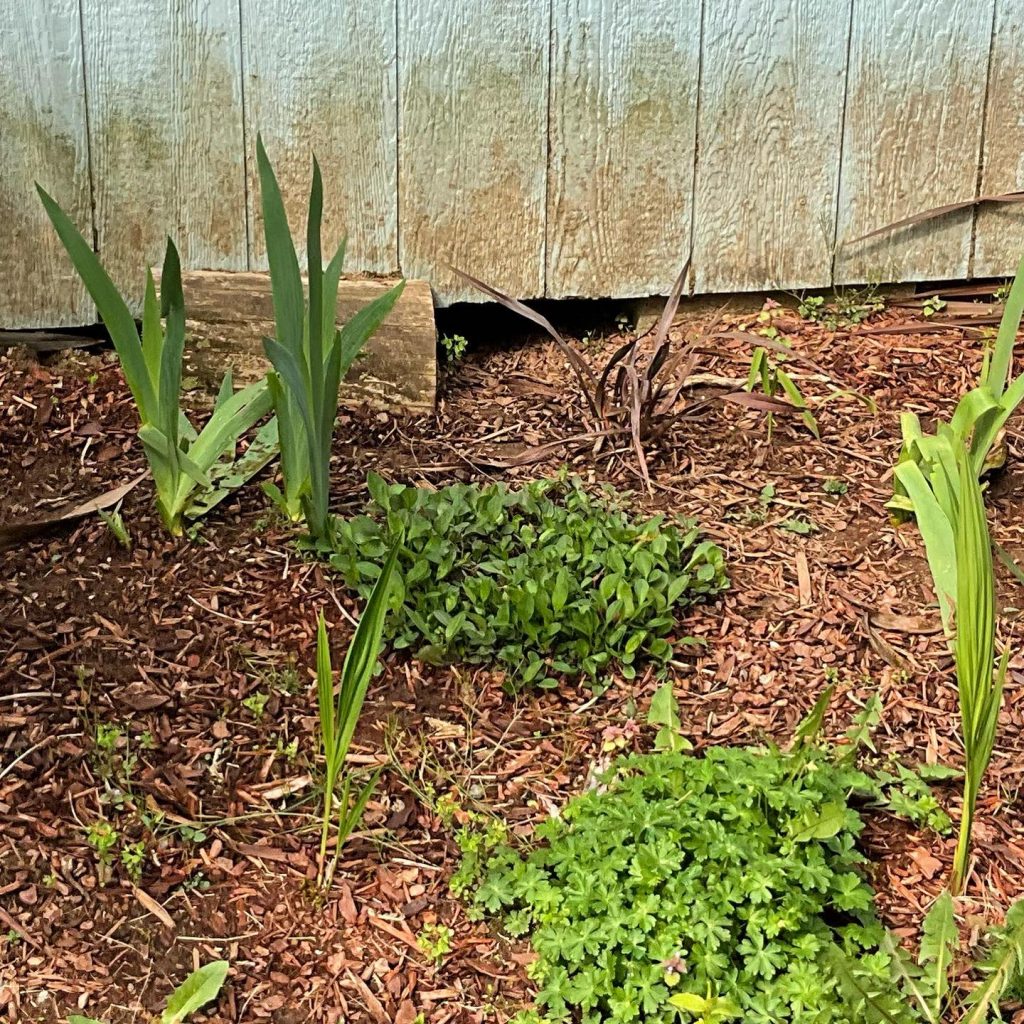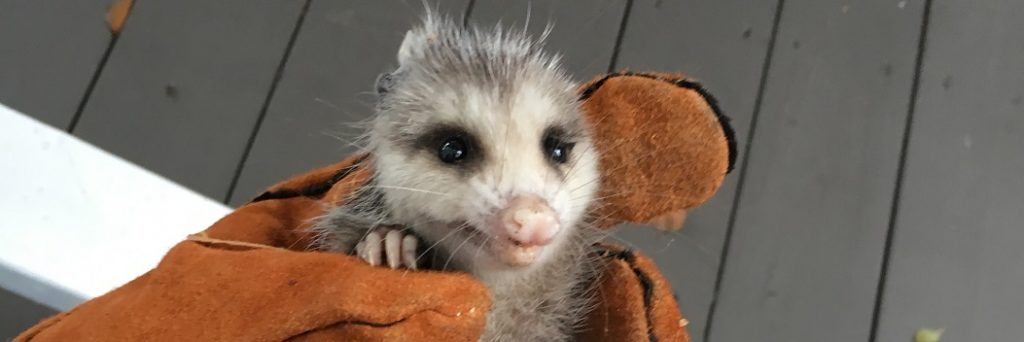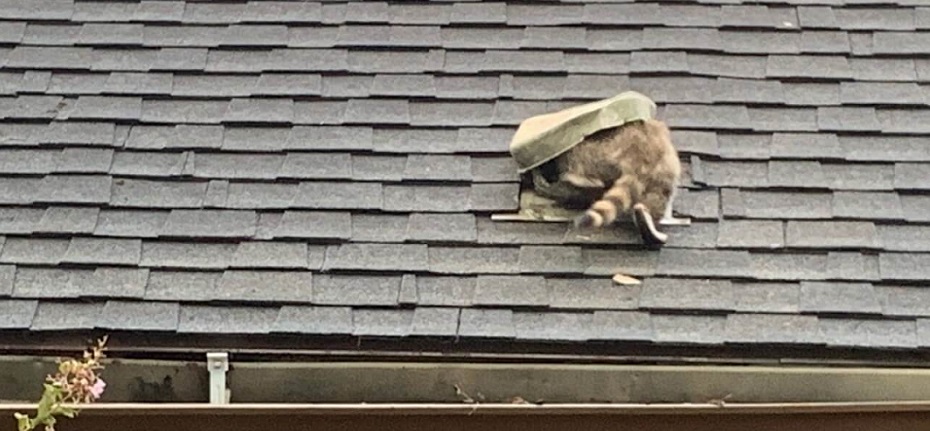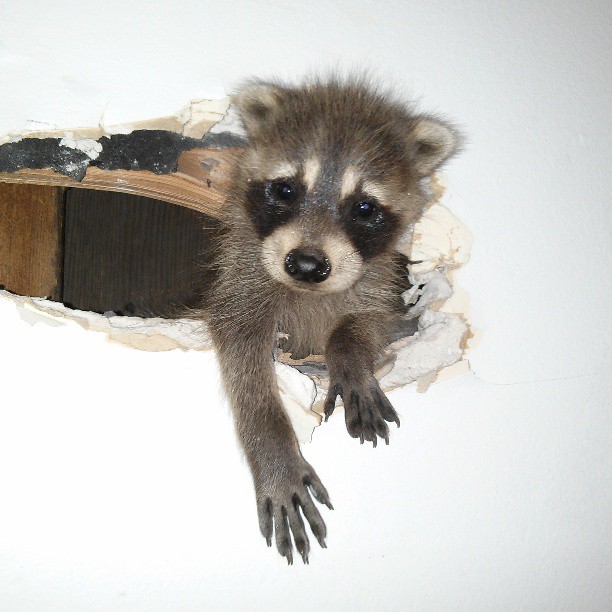Opossums are not aggressive towards humans and prefer to avoid contact with people. They are rarely seen since they are nocturnal and typically only den in one area for a few days before moving to a new place. Like other mammals, opossums need food, water, and shelter to survive. They will stay in one location until that location no longer meets their needs.
Opossums benefit the ecosystem by consuming thousands of ticks and other bugs, mice, snakes, slugs, and more yearly. However, they can also be a nuisance if they live under your house, deck, or shed.
How Do I Remove Opossums From Under My Home?
Today, multiple methods of opossum removal exist, including live trapping, repellants, and exclusions to prevent them from returning. Even though opossums aren’t as dangerous as other wildlife, they can still damage your home, shed, and deck. They may also harm humans and pets if they feel threatened and try to defend themselves.
Is an Opossum Under My Shed?

Opossums are the only marsupials in North America. You likely won’t see them unless it is after dark, but they have a distinctive appearance. They are recognizable by their hairless ears, pointy noses, and long tails. They are the size of a cat but resemble a rat. They have white faces, pink noses, and beady black eyes. Opossums have fifty teeth that help them growl, hiss, and snarl.
These vocalizations are one way to know you have an opossum under your shed. They are also known to shriek and smack their lips. It may be an opossum building a nest if you hear tearing, scratching, or ripping.
Opossums defecate and urinate wherever they go. If they are active around wood, insulation, or other porous materials, their waste may seep into them, causing stains and a terrible smell. Occasionally, you may see opossum tracks in dusty or wet areas. Tracks of their paws and tails appear together.
Why Are Opossums Under My Deck?
Finding opossums under a deck is becoming more common as the pests adapt to losing their natural habitats. When humans remove forests to develop residential and commercial properties, wildlife must find new areas with food, water, and shelter.
Homeowners who want to protect their properties should look for opossums under sheds, decks, or houses. The pests build nests where they take shelter and raise their young. They prefer these enclosed spaces because they’re safe from predators and harsh weather. Opossums do not hibernate but stay hidden in their shelters in colder weather. Most find shelter in abandoned burrows, tree hollows, attics, basements, and under houses, sheds, and decks.
Is It Bad to Have Opossums Under Your Deck, Shed, or House?
Having opossums living under your house puts your property at risk of damage and you and your family at risk of disease. The animals are filthy and known hosts to many pathogens and parasites. They are the sources of foul smells which can linger on your property. While not usually aggressive, opossums will bite, scratch, and claw their way to safety, harming anyone or anything in their way.
Property Damage Caused by Opossums Under the House, Shed, or Deck
Many people ask us, “Can opossums do damage under the house?” Yes, they can. The marsupials have strong claws and can climb anything, including siding, chimneys, trees, and soffits. Whatever they climb on is at risk of being torn, punctured, or broken.
Opossums dig holes in the ground, and if they are under your house, shed, or deck, the holes they dig can cause your foundation to become unstable. It may even shift or sink in some areas.
Opossums defecate frequently, and wherever they are active, they leave a huge mess. The numerous items they scavenge to build a nest add to the mess. If opossums have access to ductwork or pipes, they will enter and roam into your home.
Whatever is under your home, shed, or deck is at risk of destruction. Opossums will chew electrical wires, scratch and break wood beams and floor joists, and create holes that give them access to the inside.
Health Risks and Dangers of Opossums
Opossums are more resistant to rabies than other wildlife but are not immune. Although rare, they can contract rabies. Opossum feces grow mold, and mold spores are released into the air when feces is disturbed. If a human breathes in the spores, they may experience respiratory issues. Opossums carry and transmit the following:
- Leptospirosis
- Tularemia
- Tuberculosis
- Coccidiosis
- Salmonella
- Toxoplasmosis
- Chagas disease
Their fur harbors lice, fleas, and ticks. Ticks carry multiple types of bacteria that lead to severe infections, including Lyme disease, transmitted from deer ticks, or Rocky Mountain spotted fever, transmitted by the American dog tick. When pet food and water dishes are left outdoors, an opossum can contaminate them with equine protozoal myeloencephalitis, or EPM.
Can Opossums Under the Deck Get Into the House?
If an opossum is under your deck, you may soon have an opossum in the house. Opossums dig and burrow under foundations and often find entry points into your home through plumbing, pipes, vents, ductwork, or broken boards. They will seize the opportunity to enter if they see a broken window, a hole behind the siding, or an unsecured pet door.
How to Prevent Opossums from Getting Under the House, Deck, or Shed
The first step in preventing opossums from getting under the house, deck, or shed is to eliminate all possible food sources that attract the animal to your property. Food sources may include the following:
- Birdseed in bird feeders
- Birdbaths or animal waterers
- Stagnant water that attracts insects
- Unprotected chickens and eggs
- Unsecured trash cans
- Accessible pet or livestock feed
Fences are sometimes used to prevent opossums from entering a property. Hardware cloth around the home can secure entry points. Additionally, keeping problem areas well-lit at night may scare the pests away. Opossums like to hide in piles of clutter, so remove any from under the deck, shed, or home and then properly enclose the area, making it inaccessible to any wildlife.
Opossum Control Services
Exclusion services include activities that make it less possible for opossums to get under your shed, deck, or home. Professional pest control technicians can provide exclusion services that cover all the bases of preventing animals from invading your property. Call Critter Control Canada today for pest control services.
Opossum Removal: How to Get Rid of Opossums Under the Deck, Shed, or House
Some homeowners try repellents and deterrents to get rid of opossums but often find they do not always work. Blaring loud sounds, spraying scents, hanging windchimes, or flashing lights are not a guarantee.
The best method is trapping the opossum and relocating it with the help of a wildlife expert, like the ones at Critter Control, who have proper licensure, training, and experience dealing with uninvited wildlife under homes, decks, and sheds.
Trying to handle opossum removal yourself without the proper safety equipment can lead to physical harm. Wildlife experts have the right equipment and bait to lure opossums. They also understand local, state, or federal wildlife removal and relocation laws. If permits are required, they know the process of applying.
Professional services are typically preferred over do-it-yourself methods because they are safer and more effective.
Get Rid of Opossums Under Your House Today
Are you ready to get rid of the opossum living under your house? Critter Control can help. Call them today to start the removal process. The sooner you call, the sooner you can stop worrying about an opossum damaging your property or risking the health of you or your family. We can remove the animal, repair damages, and prevent future opossum visits.


